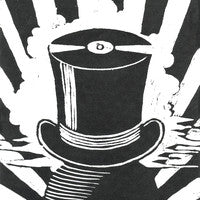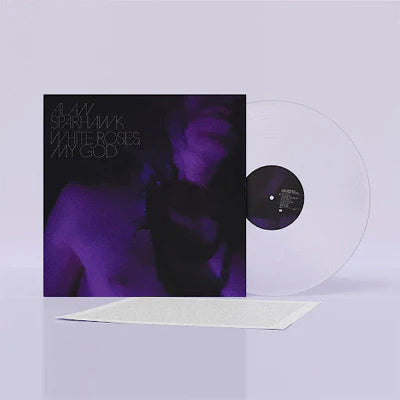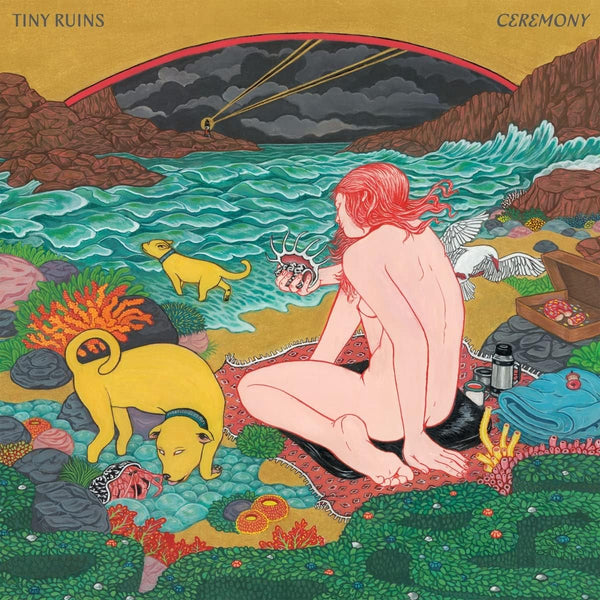Joe Meek - I Hear A New World, Vinyl LP
Factory sealed. New.
NB: It's unclear if this is the 2013, 2015 or 2017 reissue (without opening the shrink wrap). Possibly magenta, white or black vinyl. Lucky dip! See the link below for release details of all three versions.
https://www.discogs.com/master/37001-Joe-Meek-The-Blue-Men-I-Hear-A-New-World?label=174290
By the time Sputnik touched outer space, Meek had already ascended to the top of the charts. According to Barry Cleveland’s book Joe Meek’s Bold Techniques, Meek was the first UK producer to deploy overdubbing, compression, spring reverb, flange, and tape loops to studio recordings. Yet due to his schizophrenic nature, business fall-outs and fights led to Meek recording in his own flat rather than a professional studio, where his eccentric ways began to deepen. Inspired by the day’s headlines, Meek began to conceive of a concept album “to create a picture in music of what could be up there in outer space.” And yet how to evoke the alien and the unknown with only terrestrial instrumentation rendered by humans?
That the sound of a strange sonic world was created from the basic building blocks of a hack skiffle band recorded in his home studio, remains as remarkable a feat as your deadbeat roommate sending a rocket made out of beer cans to the moon. Legend has it that Meek used everything lying about, even the proverbial kitchen sink, recording and rendering the sound of blowing bubbles with a straw, using milk bottles as percussion and a draining sink to capture some of these sounds. There are few 20th century musical genres as odious as skiffle, but Meek set about deconstructing such pap: Traces of things like Hawaiian lap steel, tacky pianos, stiff drumming, maracas, wordless vocal harmonizing, and country guitar licks abound, yet Meek makes the quotidian sound extraterrestrial.
Rather than record all the performers playing together in real time as was de rigueur of the era, Joe Meek isolated instrumentation and treated everything from guitars to voices to a battery of echo, reverb, and other homemade electronic noise-making devices, distorting and distending sound until something strange and new was achieved, his end results much more than the sum of its parts. I Hear a New World remains the paragon for such producer-made music (think dub reggae, Brian Eno, Timbaland, etc.), nevermind that it was barely heard within that era or in Meek’s lifetime. Originally conceived as a demonstration of stereo sound in the mono era, an EP in an edition of 99 copies circulated in 1960, while a second EP had sleeves printed, but no music. Only in the grunge era (1991) did a fully-formed version of I Hear a New World come to earth.
Twenty plus years after first hearing it, via this vinyl reissue, I Hear a New World still sounds surreal, an alternate universe that infiltrated our own. The opening title track remains a strange hybrid, a pop confection with exotica backdrop, yet with the croon of singer Rod Freeman overlaid with sped-up harmonizing vocals. Yes, the seeds of future pop juggernauts like Alvin and the Chipmunks and Kanye West lie within this world. One can also hear the sort of musical mischief and awe-inspiring noises concocted by the likes of Nurse With Wound’s Steve Stapleton, Stereolab, and St. Etienne, as well as folks who later on covered the title track, like Television Personalities and They Might Be Giants. The gurgling noises that open “Entry Of The Globbots” could easily come from 21st century laptop musicians, even if it does devolve into martial drums and more of those damned chipmunk chortles. Same goes for the crunching noise that turns into a pedal-steel ditty, “Magnetic Field”.
While there was bright moment of pop success in a Meek-produced novelty to come in 1962’s hit “Telstar”, the rest of Meek’s life was tragic, ultimately coming to an end in 1967 when he murdered his landlady with a shotgun and then turned the barrel upon himself. By then he had already cussed out fellow producer Phil Spector, accused a record label of planting microphones in his wallpaper to steal his ideas, and turned down the opportunities to work with a then-unknown David Bowie, the Beatles, and Rod Stewart. And yet the notion of the bedroom producer was born in that flat off Holloway Road, a quirky cosmic yet personal sound that flows through the likes of Sir Paul McCartney (circa McCartney II), Aphex Twin, Burial, et al., all of them releasing a similar sort of music that harkens back to this strange new world.
Text via Pitchfork





